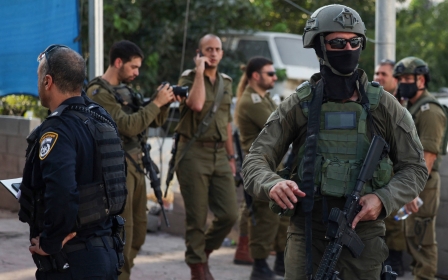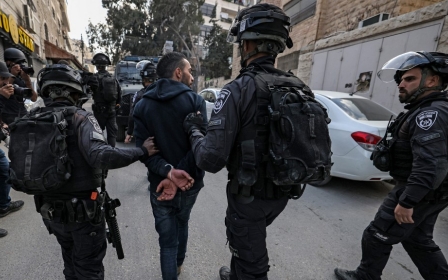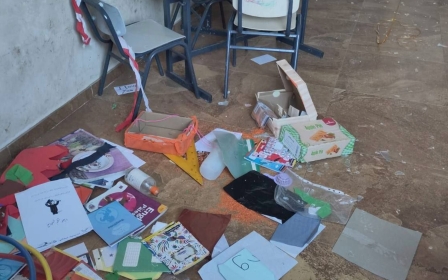Israeli police crack down on Palestinians protesting 'racist' budget cuts
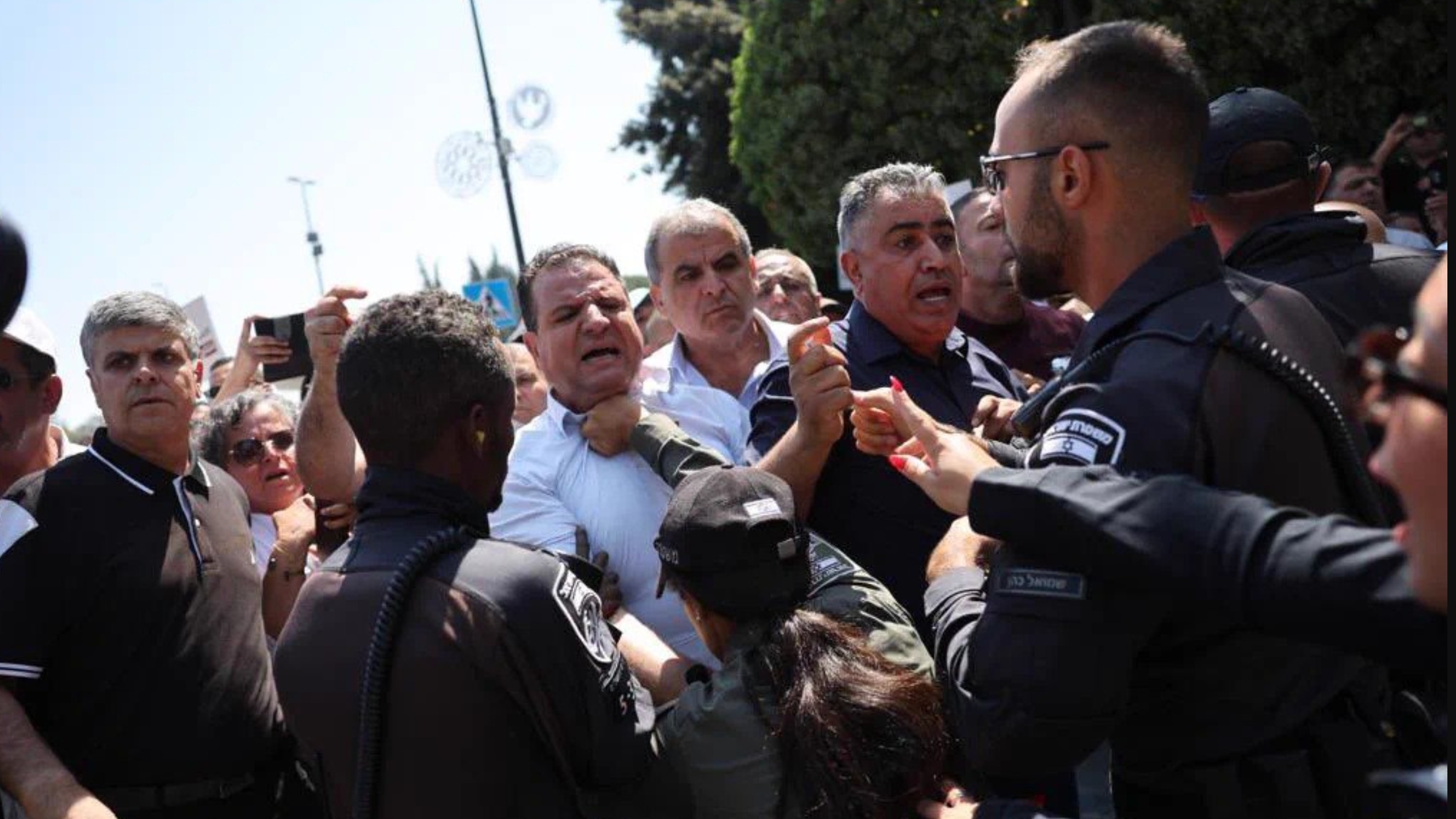
Israeli forces detained and beat Palestinian demonstrators in Jerusalem on Monday during a strike that was also held across parts of the occupied West Bank.
Hundreds of Palestinians, including those that work in local authorities, gathered in front of the prime minister's office in Jerusalem to protest against the freezing of budgets of local authorities.
The decision to protest and strike comes after Israel's finance minister, Bezalel Smotrich announced that the government would not transfer budgets to Palestinian local authorities.
Smotrich is withholding 200 million shekels ($55m) which were earmarked for Palestinian towns across the country. He also stopped the funds for a five-year educational programme for Palestinians at the Hebrew University of Jerusalem.
Palestinian local authorities have long complained about a lack of resources and funds, as well as no industrial or commercial development in the occupied West Bank, including in areas such as healthcare, housing, public transport and infrastructure.
New MEE newsletter: Jerusalem Dispatch
Sign up to get the latest insights and analysis on Israel-Palestine, alongside Turkey Unpacked and other MEE newsletters
Palestinian officials have struggled to pay the salaries of their employees due to the lack of funds.
The protest was also held over the increased levels of crime and harassment of Palestinians by Israeli settlers. The protesters expressed their frustration over the government's failure to tackle the rise in violence and not allowing them to peacefully protest.
Among those assaulted in the crackdown was Knesset member Ayman Odeh. Photos shared online show an Israeli policewoman punching him in the throat and face.
Another head of council, Fouad Awad, was also detained in the crackdown.
"Instead of arresting the criminals who have carried out 150 murders [of Palestinians] since the beginning of the year, they are arresting those who demand a fight against crime and their civil rights," he said in an interview with local media.
'Racist approach'
The protests come ahead of the start of the new academic year, which local councils say is important as many schools are not properly equipped. Some schools have already decided to remain closed in protest against the lack of funding.
Sami Abu Shehadeh, the head of the National Democratic Assembly, told local media that the protests were "a necessary first step to confronting the racist government and its racist approach".
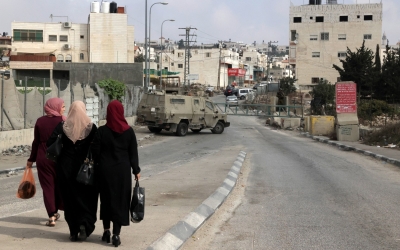
The strikes held were supported by the regional committee, which published a statement outlining the demands of the protesters.
"Funds for our local authorities are our right and not a favour from anyone. The freezing or withholding of funds will affect the provisions of services," one member of the committee said in the statement.
The committee said the government must fulfil its requests or else face more demonstrations across the country next week.
Smotrich's decision to withhold funding from authorities has drawn a lot of criticism, particularly as the cabinet approved a five-year plan of $843m for the development of occupied East Jerusalem.
Netanyahu said "the decision will change the face of Jerusalem", while Palestinian officials said that the funds will not reach Palestinian communities.
Prior to the protests on Monday, Smotrich warned that those taking part would be "the first to pay the price of threats, blackmail and violence", and that they would "work to prevent the reckless and irresponsible strike".
Middle East Eye delivers independent and unrivalled coverage and analysis of the Middle East, North Africa and beyond. To learn more about republishing this content and the associated fees, please fill out this form. More about MEE can be found here.


